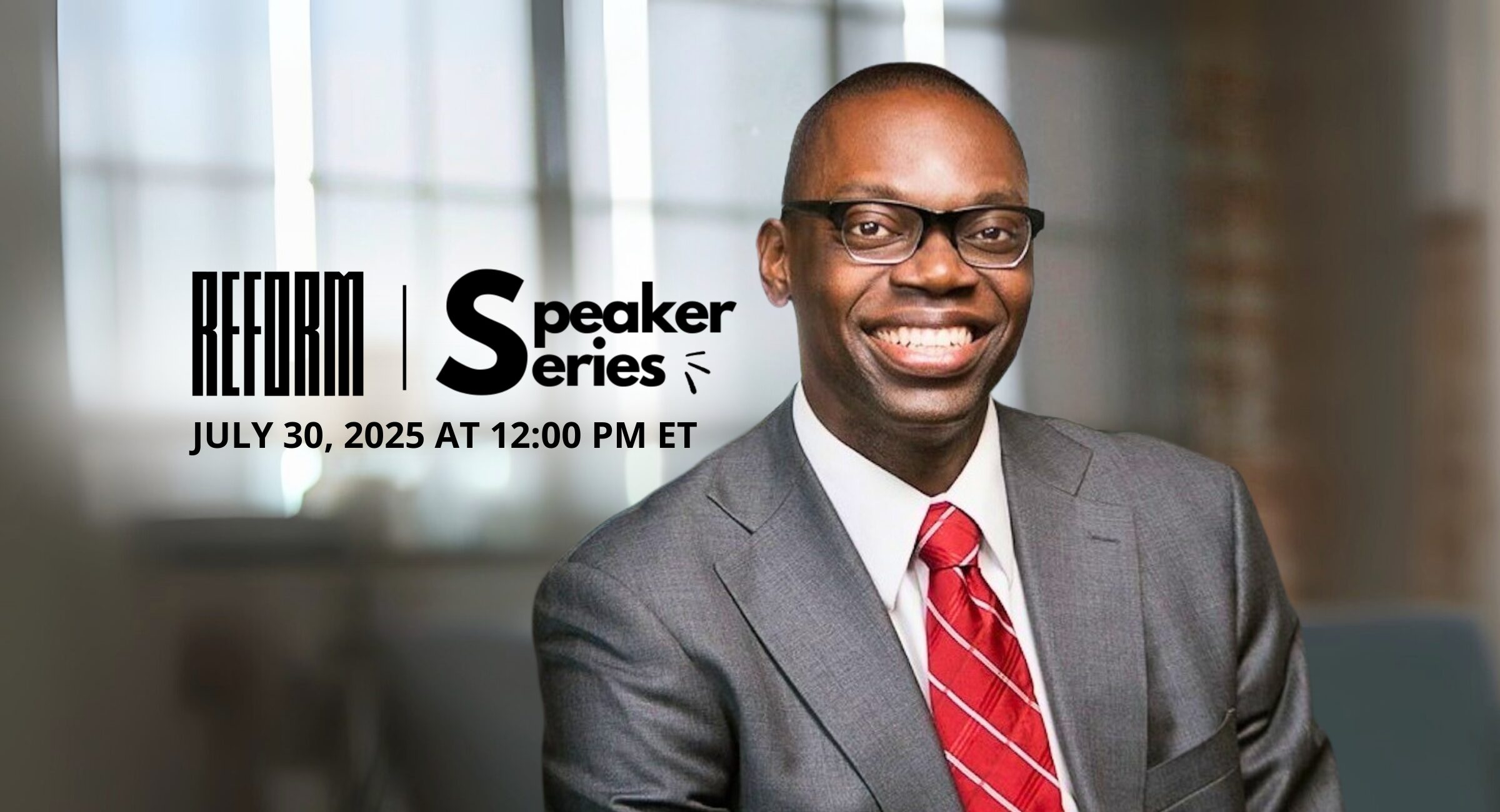
Welcome to REFORM in Focus, our thought leadership series that spotlights innovators reimagining probation, parole, and public safety. Each edition features experts who are driving meaningful change to our supervision system.


Garlin Gilchrist II is the 64th lieutenant governor of Michigan, a position he has held since 2019. He’s brought an engineer’s mindset to the role, looking for broken systems in need of fixing and then doing what needs to be done to fix them. In 2021, he supported a package of bipartisan probation and parole reforms championed by REFORM Alliance and a robust local coalition—effectively rewriting Michigan’s approach to justice.
On July 30, he’ll be joining us at the REFORM office in NYC to be featured in our Speaker Series. We sat down with him to learn more about his career and his thoughts on the supervision system.
Why is justice reform important to you, and what accomplishments are you most proud of?
At my core, I’m an engineer. I went to school to make systems work for people, and any system that doesn’t position people for success is a failed system. The justice system has failed too many people across too many communities.
In 2019, I co-chaired the Michigan Joint Task Force on Jail and Pretrial Incarceration. We heard from people in every region who had been failed by this system. As an engineer, when I see a broken system, I have an urgency to fix it. We discovered people under supervision for their entire adult lives, people jailed for issues like suspended driver’s licences, and a record expungement system that only helped 7 out of every 100 eligible individuals.
So we got to work. I created the Clean Slate Automatic Criminal Record Expungement Program (2020), the broadest of its kind in the country.
We restored driver’s licenses for hundreds of thousands of people and reformed our approach to pretrial detention. Then we went further upstream. In 2023, I signed a 17-bill juvenile justice reform package—the most significant change in 40 years—focused on funding services and better resourcing communities.
One creative effort I’m proud of is Jobs Court, a program we launched with Attorney General Dana Nessel. Rather than jail time, eligible individuals can be connected with small businesses. After a year of work, the offense is dismissed, and they walk away with a job—not a record.
Michigan has made significant bipartisan progress on criminal justice reform. What have you learned about building consensus across party lines?
Michigan has 83 counties, and I’ve visited all of them multiple times. What I’ve seen is that the justice system has failed people in every region—regardless of party.
Clean Slate is a good example of bipartisan consensus. I talked with Republicans about values: accountability and contribution. If someone has fulfilled their accountability, we need to give them a chance to contribute. How can someone be productive if they can’t get a job or a home?
My background as a software engineer helped. We built a tech-based solution that didn’t increase discrimination but expanded opportunity. That convinced people this wasn’t just policy—it was innovation.
What role do supervision officers play in successful reentry?
Their role needs to be framed properly. Supervision officers should be rooting for people to succeed and emerge from supervision. In Michigan’s specialty courts, everyone is aligned around success—that’s what we need across the board.
Supervision should be a partnership. Partners check in, hold each other accountable, and ensure each person has the tools they need. We also need to align incentives—success shouldn’t be how many people you supervise, but how many people you’ve helped exit supervision successfully.
What advice would you give to leaders in other states working on reforming supervision systems?
You can’t change what you don’t try to change. It sounds simple, but too often people give up because reform is hard. Giving up on systems is giving up on people—and you can’t be a real public servant and do that.
I don’t believe in impossibility. Problems have solutions. Whether it’s policy, technology, or relations—it starts with conversations and trust. There’s always something we can try. We must keep building, keep finding a way forward. If we keep going, we’ll create a future where everyone knows they have a path.
What’s the next big opportunity for reform in Michigan?
Two things stand out. First, we can expand Clean Slate to include more offenses—especially automatically expunging cannabis convictions.
Second, we must address fines and fees. Poverty is not a crime. No one should be in jail just because they can’t afford to pay. Poverty is a policy failure, not a personal one, and we have work to do there.
These changes take a long time. What motivates and sustains you in this work?
Solving problems gives me joy. I think about it when I wake up and when I go to sleep. When I talk to people who can’t afford housing, healthcare, or who are blocked from opportunity by a decades-old mistake—they motivate me.
If we can remove the barriers standing between people and their potential, we can unlock a better future. That possibility drives me every day.
